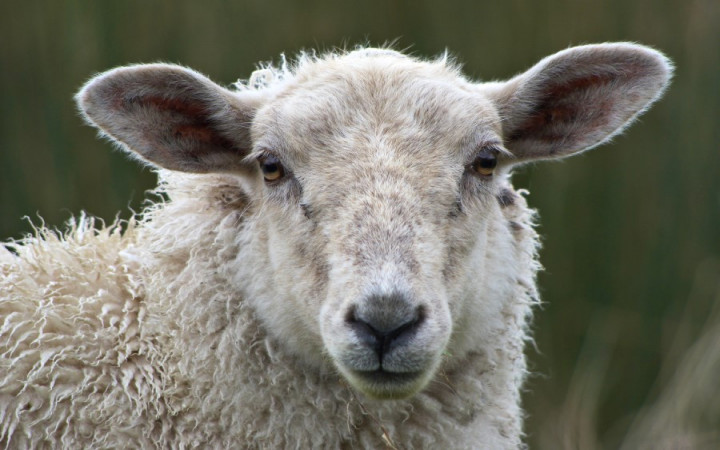Do you have a favorite sweater you love to wear when it's cold outside? If it's a wool sweater, you probably already know that you have to be very careful with it when you clean it. Why? Wool will shrink when it gets wet!
So where does wool come from? It comes from sheep, of course. So do sheep shrink when they get wet? If you're a shepherd with a flock in the rain, will you be left with a group of much smaller sheep?
The shrinking of wool clothing that so many people are familiar with is actually the result of a process called felting. To understand felting, you need to know a bit more about wool as a fiber.
The fiber we know as wool that comes from sheep is made up of amino acids, which are the building blocks of protein. As wool grows on a sheep, it gets keratinized, which simply means it hardens. Other examples of keratinized proteins are fingernails and hair.
Wool fibers on a sheep have flat, overlapping scales that always point away from the sheep's body. When these wool fibers get processed and made into clothing, however, the fibers are stretched out. The orientation of the scales gets mixed up and they can be pointing in any random direction.
When wool clothing is washed and moved about like is normal in a washing machine, the wool fibers rub against each other. The scale edges on the fibers often touch and interlock, holding the fibers in position and not allowing the fibers to slide back to their original, stretched-out positions. When hundreds and hundreds of wool fibers do this, it's called felting and results in a smaller garment that appears to have shrunk.
As any shepherd will tell you, sheep do just fine in the rain and don't shrink like a wool sweater. This is because their wool fibers have scales that are all pointing in the same direction.
When they get wet, they can slide back into position without getting caught or locked into place. No felting takes place on sheep in the rain, so they don't shrink!
Sheep also produce a natural oily substance called lanolin. Lanolin covers the wool fibers of their coats, acting as a natural lubricant that prevents fibers from locking together. Lanolin also repels water, which makes sheep somewhat waterproof when they're out in the rain. This is good for sheep, since it prevents their wool from getting soaked and waterlogged, which would be very uncomfortable since they have so much wool!




